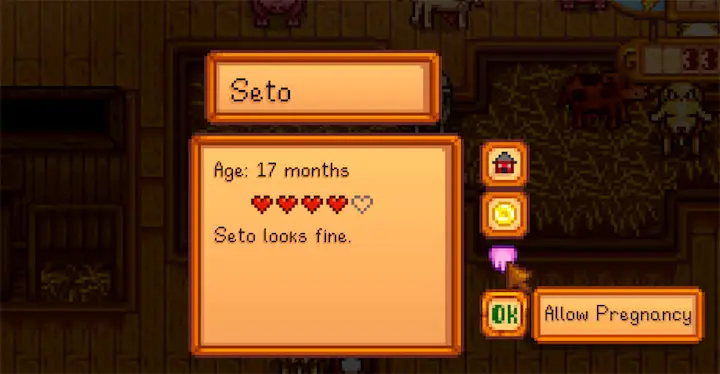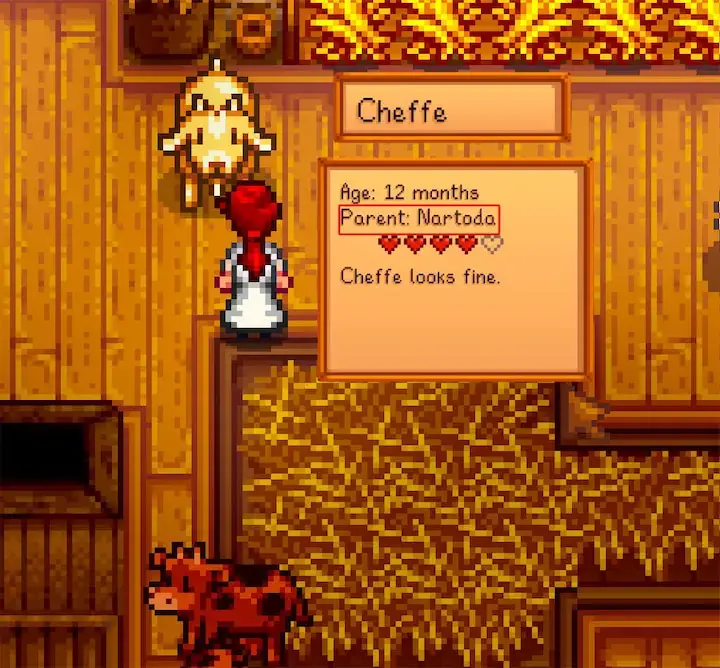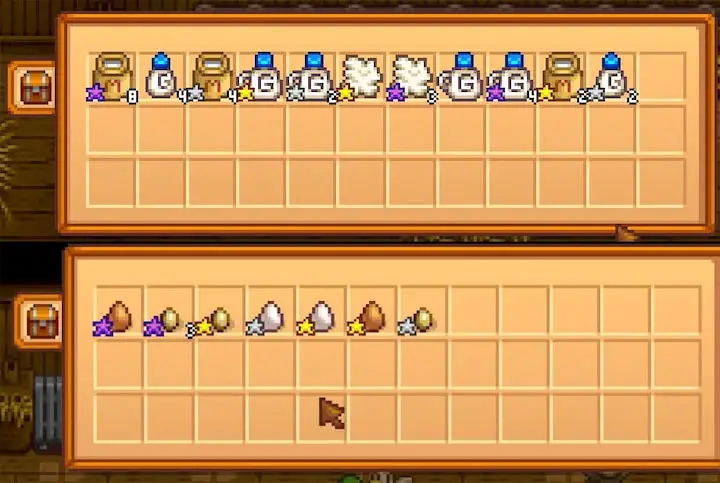Everything You Need to Know About Animal Pregnancy in Stardew Valley
Animal Pregnancy is a useful in-game mechanic that will save you a lot of money if you decide to focus on raising animals, but also in general. A lot of players made a mistake during their first playthrough by filling their first barn with animals immediately and spending a good amount of money without knowing about this mechanic, including myself. So today, you will learn everything you need to know about Animal Pregnancy in Stardew Valley, how it works, the requirements, etc.
How to Get Animals Pregnant in Stardew Valley
So the pregnancy mechanic works only for almost all barn animals, and rabbits that fall in the coop category. To be precise, cows, goats, sheep, and pigs. The only exception is Ostriches, as they hatch and require a special incubator.

Specific Requirements for Pregnancy
First, there are a few requirements that your barn and animals will have to meet, and they are:
- You must have free space for at least one more animal in the barn.
- The pregnancy option must be enabled in the animal’s menu. To do this, interact with the animal after petting it, and then you will see the pregnancy option on your screen.
- The animal must be mature.
The Likelihood of Pregnancy Occurring
The pregnancy happens at random. If there are no events after you hit the sack, there is a 50% chance that the game will attempt animal pregnancy.
After the initial check, the game performs another assessment, which involves a likelihood of 0.55% multiplied by the number of animals present, to determine if the event should proceed. For instance, a barn with three animals, which is upgraded, will have a probability of 1.65% passing this evaluation. If the building fails this test, the game will repeat this process for all other buildings until none are left.
If a barn passes all the assessments, the game selects a random animal inside it, and it will become pregnant. The baby animal will be born after 14 days, while it needs 12.5 for the baby to hatch from the egg.
Breeding Strategies
There are no special strategies when it comes to animal breeding, as your luck is in the game’s hands. If you are either breeding animals to keep or sell them, the “strategy” is pretty much the same. Be sure to have space in your barn and give your animals a lot of pets to increase their happiness level because it impacts their products and their sell price.
Baby Animals in Stardew Valley
As we passed through the pregnancy, it was time to talk about little and cute furry fellas: purchasing, hatching, when they grow up, and how to care about them. This part won’t be only for barn animals but also for coop animals.
Purchasing and Hatching
Okay, let’s start with barn animals and compare the price of purchase, the price of their products, the price of their artisan goods, and their selling price. As always I will include the lowest possible, and the highest possible price.

| Animal | Cost | Product | Artisan good | Sell price |
|---|---|---|---|---|
| Cow | 1,500g | Milk – 125g-300g Large Milk- 190g-456g | Cheese- 230g- 644g | 1,950g |
| Goat | 4,000g | Goat Milk- 225g – 540g Large Goat Milk- 345g-828g | Goat Cheese- 400g- 1120g | 5,200g |
| Sheep | 8,000g | Wool- 340g- 816g | Cloth- 470g- 658g | 10,400g |
| Pig | 16,000g | Truffle- 625g- 1,250g | Truffle Oil- 1,065g- 1,491g | 20,800g |
| Ostrich | Must be hatched from the ostrich egg. | Ostrich egg- 600g- 1,440g | 10 Mayonese, each one can vary from 190g – 532g | 20,800g |
Now let’s see coop animals.
| Animal | Cost | Product | Artisan Good | Sell price |
|---|---|---|---|---|
| Chicken | 800g | Egg- 50g-120g Large egg- 95g- 228g | Mayo- 190g- 226g | 1,040g |
| Void Chicken | Must hatch from the void egg | Void egg- 65g- 156g | Void mayo- 275g- 385g | 1,040g |
| Golden Chicken | Must hatch from the golden egg | Golden egg- 500g- 1,200g | 3 jars of good quality mayo – 285g- 532g | 1,040g |
| Duck | 1,200g | Duck egg- 95g- 228g Duck Feather- 250g- 500g | Duck mayo- 375g- 525g | 1,560g |
| Rabbit | 8,000g | Wool-340g- 816g Rabbit’s foot- 565g- 1,365g | Cloth- 470g- 658g | 10,040g |
| Dinosaur | Must hatch from the dinosaur egg | Dinosaur egg- 350g- 700g | Dinosaur mayo – 800g- 1,120g | 1.300g |
Again, the rabbit is the only animal in the coop that can get pregnant, and the process is the same as for the barn animals.
Every other animal from the coop can hatch from the egg they produce. For example, if you have 1 dino egg and an empty coop, you can fill it with dinosaurs by just putting the egg into the incubator once the place is free.
This table doesn’t only show you the cost and how to hatch, but also, that it’s not profitable to sell animals for the sole purpose of selling and getting money. It’s best to sell the animals once you acquire better ones. For example, to switch between normal chickens to golden ones.

Animal Care
To raise your animals properly you need to show them love by petting them, feeding them, milking them, and shearing them. However, there is a carefully planned system behind animal care and increasing your friendship with them, and I’ll give you some tips on how it works, what to do, and what not. Each animal has 5 hearts, and each heart is 250 points.
Actions that increase friendship are as follows:
- Petting +15, or +30 (if you have Shepherd or Coopmaster and if the animal falls in your skill category)
- Milking or Shearing +5 (no penalty for not being milked or sheared)
- Eating Grass Outside +8 (keep in mind that is always good to have some grass outside)
Actions that will decrease friendship are:
- Not Fed -20
- Trapped outside overnight -20
- Not petted -5 to -10
Conclusion
We reached the end of this article, and I want to repeat a few important things about this subject.
- Make sure that the pregnancy button is on
- Don’t sell animals to earn money because it’s unprofitable
- Don’t forget to give your animals proper care and love
That would be it. I wish you luck with the animals!